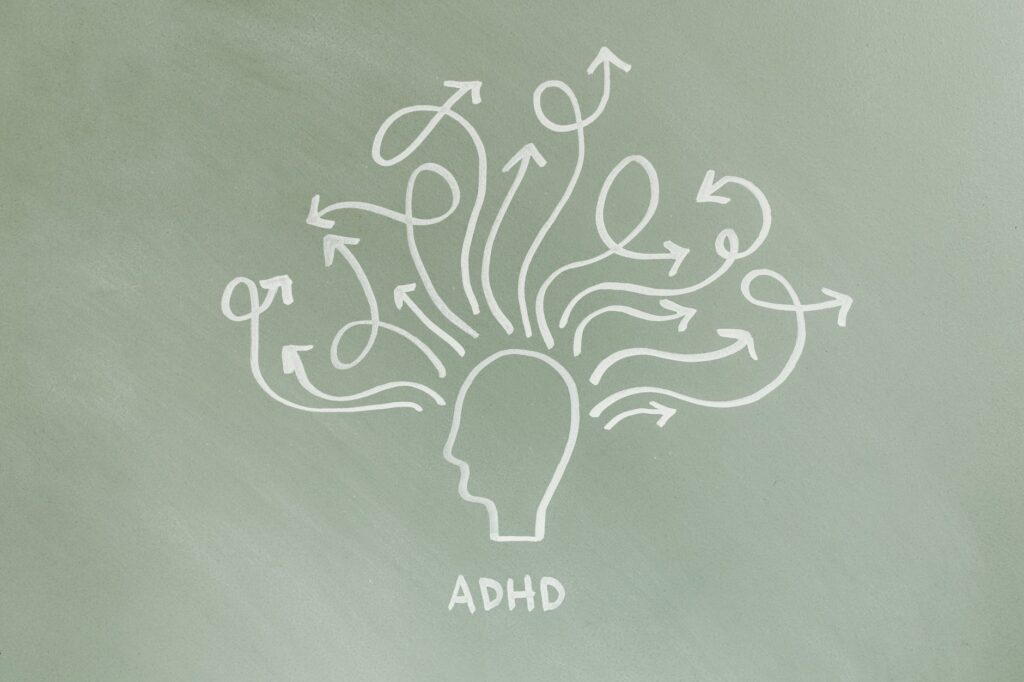Attention Deficit Hyperactivity Disorder (ADHD) is a neurodevelopmental disorder characterized by symptoms such as inattention, impulsivity, and hyperactivity. These symptoms can appear in a variety of ways, impacting everyday activities such as social interactions, emotional control, and cognitive function. In this blog post, we’ll concentrate on task initiation paralysis, one particular difficulty encountered by people with ADHD. We will go into more detail about the implications, emotions, and general effects of this issue on those who have ADHD.
Understanding ADHD: Challenges and Symptoms

Both adults and children can experience the complex symptoms of ADHD, which usually fall into three categories:
- Inattention: Difficulty sustaining focus, disorganization, and forgetfulness.
- Hyperactivity: characterized by excessive talking, pacing, and moving.
- Impulsivity: Acting without considering the consequences, interrupting others, and impatience.
Numerous difficulties, including problems with cognitive function, emotional control, and social relations, can result from these symptoms. However, in this post, we will specifically address a less talked about problem, task initiation paralysis.
Understanding Task Initiation Paralysis in ADHD
The act of beginning a new job or activity is referred to as task initiation. This presumably straightforward action can be intimidating and overwhelming for people with ADHD. A number of factors, including trouble focusing, issues with executive functioning, and negative feelings like anxiety or frustration, can make it difficult to start a job.

Task Initiation Paralysis Effects
For people with ADHD, the inability to start activities can have a number of detrimental effects, including:
- Procrastination: People who are unable to commence tasks frequently develop chronic procrastination, which causes them to put off important tasks or obligations.
- Poor Time Management: Task initiation paralysis can make it difficult for someone to manage their time well, which can lead to missed deadlines and unfulfilled responsibilities.
- Lower Academic or Professional Performance: Failure to start projects can impede scholastic and professional success because people may not finish projects or assignments in a timely manner.
- Increased stress and anxiety: The ongoing struggle to start chores can result in elevated stress and anxiety levels, which exacerbates ADHD symptoms.
- Relationship Tension: When someone is unable to finish a job, friends and family may become upset because they believe they are lazy or unorganized.
Feelings Associated with Task Initiation Paralysis
People with ADHD who experience task initiation paralysis frequently experience an array of feelings, including:
- Frustration: Feelings of frustration and self-doubt can result from being unable to begin mundane tasks.
- Anxiety: The strain to finish tasks can result in anxiety, which might prevent task initiation entirely.
- Guilt: When duties are left unfinished, people may feel guilty for not living up to their own or other people’s expectations.
- Overwhelm: The accumulation of uncompleted tasks can evoke a sense of overwhelm, making it even more challenging to initiate tasks.
- Shame: People with ADHD might experience feelings of embarrassment or shame due to their inability to begin activities, particularly when compared to their peers.
Addressing Task Initiation Paralysis
While task initiation paralysis can be a major problem for people with ADHD, there are a number of strategies that can help:
- Break Tasks Up: Divide large jobs into smaller, more manageable steps to reduce overwhelm and make the initial start of the task easier.
- Use external cues: Reminders that are either visual or auditory, such as alarms or to-do notes, can assist in triggering task initiation.
- Set a Deadline: Create a feeling of urgency by setting deadlines; this helps motivate people to begin their tasks.
- Create routines: Creating regular routines can give tasks some framework and support.
- Seek expert assistance: Talking to a therapist or psychologist can help people come up with coping mechanisms and deal with the emotional components of task initiation paralysis.

Conclusion
The effects of task initiation paralysis in ADHD can be profound on a person’s scholastic, professional, and personal lives. The quality of life for those who live with ADHD can be greatly enhanced by recognizing the feelings connected to this challenge and putting strategies into practice to overcome it. By understanding the struggles faced by these individuals and offering appropriate support, we can help them overcome task initiation paralysis and reach their full potential.

